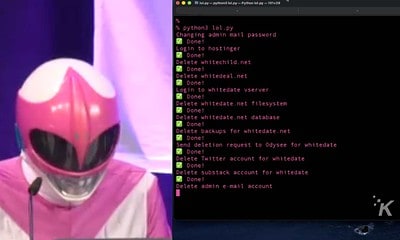Security
Email validation checkers can protect a network from devastating breaches
Aside from keeping your users’ data safe, the best email validation solutions on the market also assist with various marketing applications

Just a heads up, if you buy something through our links, we may get a small share of the sale. It’s one of the ways we keep the lights on here. Click here for more.
Entrepreneurs and website owners can easily get misled by discussions on network security, with all the talk surrounding the deployment of innovative, yet esoteric security stacks. While it’s true that these solutions come with an array of benefits, not all intended users understand how to operate them. Some businesses also have less complicated requirements than, say, a large enterprise with a supply chain network. Some users are better off with simple tools, at least for the meantime, as they build their technology toolsets.
An email validation checker is among the surprisingly versatile solutions that businesses can get a lot out of. Email Verification API, for instance, performs real-time email address validation to check for irregularities that can potentially lead to a network compromise. Let’s take a closer look at how users can take advantage of its features.
How to Use an Email Validation Checker for Network Protection
A recent unfortunate example of an email-related attack happened to serial entrepreneur and Shark Tank host, Barbara Corcoran. Corcoran lost close to US$400,000 to an invoice scam, which involved a spoofed email sent by attackers. Offenders posed as Corcoran’s assistant and sent an invoice to her bookkeeper for a real estate investment. Her team found out too late that the emails used pointed to a Chinese IP address.
Corcoran fell victim to a type of fast-growing email fraud called “business email compromise (BEC).” BEC scams target high-profile organizations, specifically finance executives, to fool them into authorizing wire transfers to attackers’ bank accounts. The attack relies on social engineering and phishing to hijack email chains or to compromise accounts.
Email Verification API can boost a network’s ability to avert BEC scams, though. It alerts users if an email address a sender uses is fake, non-existent, disposable, or is used to receive messages intended for other addresses (also known as a “catch-all address”). Users can use the API to help block messages from such email senders to further thwart BEC and phishing attempts.
How? Apart from what we already mentioned, the API also checks if an email address can connect via Simple Mail Transfer Protocol (SMTP). That moves messages across networks between senders and receivers. If such a connection isn’t possible, the email address is probably fake.
Most importantly, the API can be integrated into a data loss prevention (DLP) solution or website plugin to automatically scan the email addresses of incoming messages for signs of illegitimacy. Network administrators can prevent data exfiltration by ensuring that only email addresses that meet existing DLP rules can access users’ inboxes.
Issues That an Email Validation Checker Can Address
Website owners can also prevent the following threats with an email validation checker:
- Spam/Email bombing: Unsolicited emails, especially in high numbers, can occasionally bypass email filtering programs. They take up mailbox storage space and overwhelm the victim’s mail servers, thus resulting in downtime. Most spam emails also contain malware-laced attachments that non-tech savvy users might accidentally open. Using Email Verification API with an email filter, however, allows users to check if messages meet defined rules or otherwise.
- Free trial abuse: Companies that offer freemium features are likely to liaise with content thieves who would typically attempt to get around limitations. Email Verification API lets users prevent free trial abuse by inspecting the format of email addresses used for account signup and subscription. It checks for fake or disposable email addresses used in the signup process.
Apart from these, an email validation checker can also help users improve their domain reputation scores, as it helps enhance their email deliverability. The API allows them to ensure that campaign materials and newsletters reach subscribers with working email addresses. That lowers their bounce rates while enabling them to reach quality subscribers.
These are just some of the ways that website owners can benefit from an email validation checker. Aside from keeping your users’ data safe, the best email validation solutions on the market also assist with various marketing applications. Email Verification API is useful in several areas and won’t force users to invest in robust but costly security stacks that they may not even be ready to use.
Editor’s Note: Jonathan Zhang is the founder and CEO of Threat Intelligence Platform (TIP)—a data, tool, and API provider that specializes in automated threat detection, security analysis, and threat intelligence solutions for Fortune 1000 and cybersecurity companies. TIP is part of the WhoisXML API family, a trusted intelligence vendor by over 50,000 clients.
Have any thoughts on this? Let us know down below in the comments or carry the discussion over to our Twitter or Facebook.
Editors’ Recommendations:
- Stay away from fake news sites with reverse domain lookup tools
- How to lessen the impact of cybercrime with domain research and monitoring solutions
- IP geolocation API & WHOIS lookup: Protection against romance scams
- Uncovering a domain’s past using domain name history search tools



























